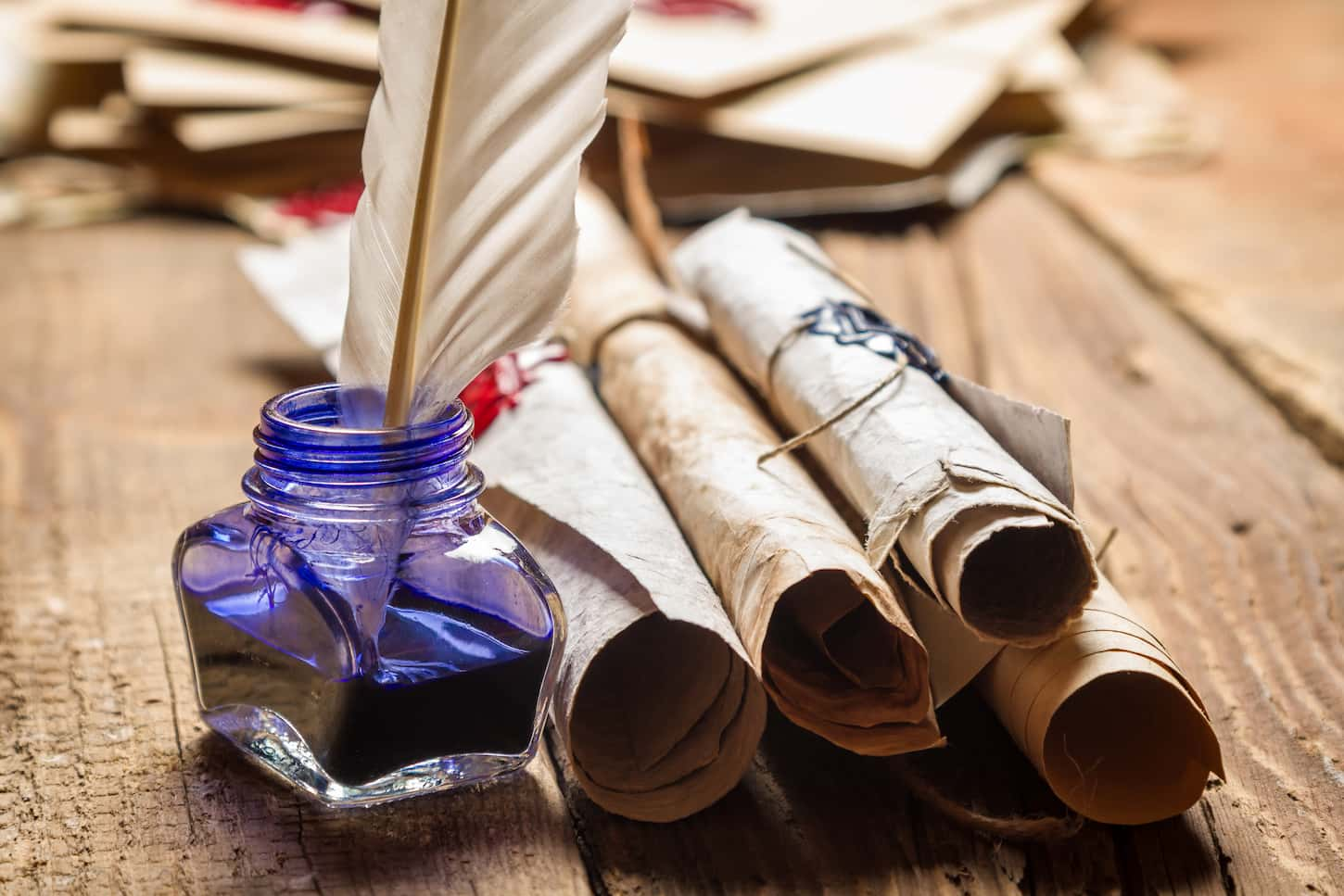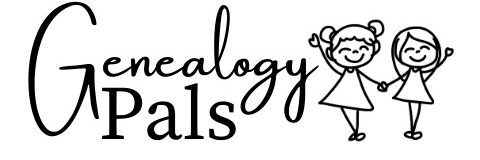Sometimes, knowing the historical background of a thing can help that thing make more sense. So what is the history of genealogy? When was it discovered? Why was it important then? And why does it matter today?
Genealogy has been tracked and recorded with history since humanity first started collecting and sharing stories. Genealogy and history were first shared via oral histories, traditions, and stories. With time, both transitioned to being written down. Genealogy has since become more systemized and accessible, making it easier for all to connect with family throughout the ages.
Ready to understand more about all of this? Be sure to keep reading!

The History of Genealogy
The first genealogies have been kept since the beginning of time – very literally!
We have a genealogy of Adam in the Bible – detailing his posterity. Now, even if your family doesn’t come from or believe in the Biblically recorded accounts, the fact is this: genealogy has been tracked and recorded in almost every culture across history. In other words, genealogy is a worldwide phenomenon.
The first genealogies were oral histories. Written histories and genealogies took longer to evolve. Even today, oral histories, traditions, and stories are still an important part of many cultures.
Over time, written records were (in part) created to help contain all of these stories and genealogies.
As genealogies began to be kept in records, the study of familial lines was very popular – mostly to prove that you were descended from important historical or religious figures.
As such, most genealogies were kept to prove royal lines and heredity. Genealogy was, therefore, proof you were important – and vital to be preserved so that your children could continue to inherit, rule, and pass along the family’s status.
For example, the Apostles recorded Jesus’ genealogy in the Bible to show that he was of the house of David. Others in the Bible were proud to trace their lineages to Abraham, Isaac, Jacob (Israel), Noah, and Adam.
Another popular example is the number of people who trace their lineage back to Confucius: with a family tree containing more than two million descendants (according to the 2009 edition; source). Talk about an amazing family reunion!
Over time, as literacy rates soared and books became more available, genealogy has become more available to everyone – even those who aren’t from historically important and/or royal lines.
We’ll cover the systemization of genealogy and other advances in the field later in the article.
When Was Genealogy First Used?
Genealogy is as old as human history. As long as we have a history, genealogies have been kept.
The first histories and genealogies were kept and passed on via oral traditions and histories. As time progressed, some cultures continued to rely on oral histories. Some transitioned to relying on written documents.
Oral histories are still a huge part of many cultures. This is a great YouTube video about FamilySearch.org’s programs to save oral histories in Africa.
Even if your family relies on written documents, there still may be a family oral history. My family has an oral history of being related to a certain famous king – I just haven’t been able to find a paper trail documenting proof of that claim yet. 🙂
The Systemization of Genealogy
After the American Revolution, it became taboo to study your family history. At least it did for most Americans! This was because popular figures (including Thomas Jefferson and George Washington) saw the study of heredity and family lines as social elitism. These men believed that everyone deserved freedom and liberty – and that it wasn’t just limited to those with the right pedigree.
So instead, Americans focused on the idea of antiquarianism – they all became really big history buffs. Americans began to love celebrating their own unique history as a new country. Pride in their new country ran rampant – and so did the preservation of local histories. Americans collected artifacts and records to be preserved so that future generations could enjoy the local, shared heritage.
This was the start of local genealogical societies. John Farmer started one, which has since become the oldest genealogical society in the United States. It’s the New England Historic Genealogical Society (you can access their website here).
John Farmer wrote books about local New England families and printed their genealogies in books. He also began the idea that genealogical information should be supported by documented evidence. Thus began the systemization of genealogy as a field of study.
Here are some other noteworthy dates in the systemization of genealogy:
- In 1940, the American Society of Genealogists was established.
- Under their direction, the Board for Accreditation of Genealogists was founded in the 1960s. They set the standards of genealogical practice and hold a high standard for the profession.
- The International Commission for the Certification of Professional Genealogists was also established as an accrediting body for the profession.
- Starting in the 1980s, the research methodology for genealogical courses was pioneered by Elizabeth Shown Mills. These courses emphasize the importance of the Genealogical Proof Standard.
What is Genealogy Research?
Genealogy research is looking for evidence to discover your family relationships. This evidence can be found from other family members, documentation from historical or family records, and genetic evidence (DNA studies).
It is difficult to do proper genealogy without using all three of these methods of research.
Each method of genealogical research relies on the Genealogical Proof Standard (GPS), which states:
- Research has been done to the best of your ability and is reasonably exhaustive.
- Back up each statement with a complete, accurate, and reliable source citation.
- Make sure that evidence is reliable and has been interpreted and correlated correctly.
- Resolve any contradictory evidence.
- Conclusions should be soundly reasoned, well-written, and based on the strongest evidence.
Who Discovered Genealogy?
Because genealogy has been around longer than any written history, no one person is credited with discovering genealogy. Instead, it’s simply part of human history.
Instead, there are individuals who are credited with advancing the field of genealogical studies.
How Do We Discover Genealogy?
You can discover your own genealogy by doing genealogy research. Start by talking to your oldest living relatives. Find out about family members that way.
Then, see what documentation you can find that corroborates what your relatives said. Or, if it says something different, make a note of that, too. Then, follow the paper trail. Keep talking to other family members who have also done genealogical research.
Connect with other relatives who do research via the best genealogical websites (read which are best in our article here and why that is). Take a genealogy DNA test to help you connect with other relatives who are also seeking answers.
Then, keep going. Keep talking and finding paper trails – and record each source so you can revisit them as needed. That’s how you’ll best discover your own genealogy.
Why Genealogy Matters
As Breanne and I have gone through the history of genealogy, I’ve been impressed by a couple of things. First, I’ve been impressed by the amount of research that Breanne initiated on this whole topic. Next, we were both impressed by the progression of genealogy over time.
It started as a way to tell stories and history. Then, it evolved into a way to prove your social elitism (and kind of became a snobby, elitist thing). Then, there was a backlash against that elitism that almost went too far.
Throughout it all, though, genealogy has remained a way to celebrate each and every one of us. Not everyone will be a leader or royalty (although let’s be honest – it’s fun to find out when you’re related to someone of historical significance or even royalty!).
Genealogy matters because it celebrates your personal family legacy and the worth of all people. It reminds us that everyone’s story matters and deserves to be told, remembered, and preserved for generations to come.
Resources
When learning about genealogy, it’s important to learn from various reputable sources. These are the sources used in this article and our research to be more informed as genealogists.
- Cna. “Confucius’ Family Tree Sets Record for World’s Largest.” Focus Taiwan, Focus Taiwan – CNA English News, 19 Apr. 2015, focustaiwan.tw/society/201504190019.
- “Ethics and Standards.” Board for Certification of Genealogists, 1 Nov. 2019, bcgcertification.org/ethics-standards/.
- “Genealogy.” Wikipedia, Wikimedia Foundation, 9 Jan. 2020, en.wikipedia.org/wiki/Genealogy.
- Pine, Leslie Gilbert. “Genealogy.” Encyclopædia Britannica, Encyclopædia Britannica, Inc., 29 May 2019, www.britannica.com/topic/genealogy.
- Rodriguez, Gregory. “How Genealogy Became Almost as Popular as Porn.” Time, Time, 30 May 2014, time.com/133811/how-genealogy-became-almost-as-popular-as-porn/.
- Ungerleider, Neal. “Ancestors, Inc.: Inside The Remarkable Rise Of The Genealogy Industry.” Fast Company, Fast Company, 12 Oct. 2015, www.fastcompany.com/3048513/ancestors-inc-inside-the-remarkable-rise-of-the-genealogy-industry.
- Weil, Francois, “John Farmer and the Making of American Genealogy,” The New England Quarterly Vol. 80, No. 3 (Sep., 2007): pp. 408-434. https://www.jstor.org/stable/20474555.
